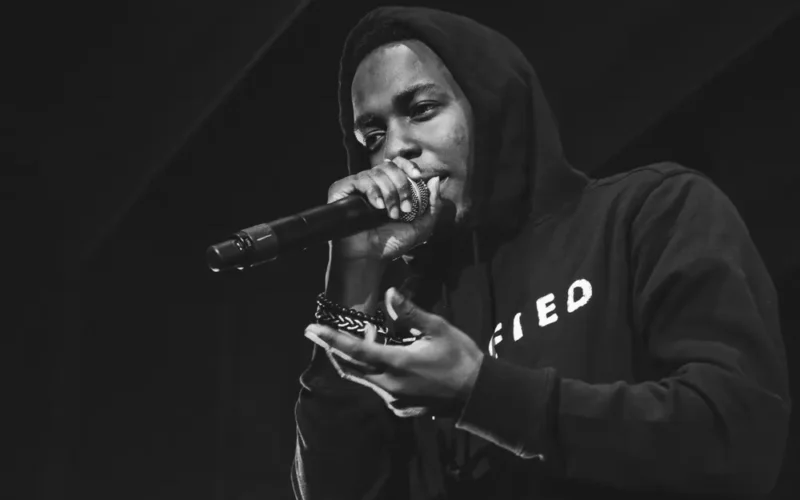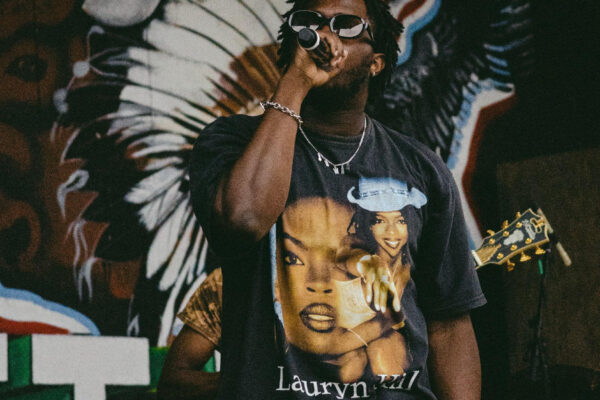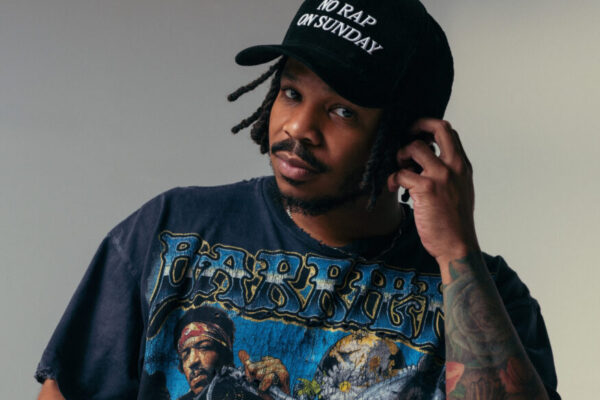The Rise of Independent Record Labels in Hip-Hop
Independent record labels are changing the game in hip-hop. They’re more than just music producers. They’re trendsetters, culture shapers, and gateways for artists outside the mainstream. Big labels used to dominate, but the scene is shifting. Now, indie labels give artists freedom to experiment, pushing hip-hop in new directions.
Here’s the deal: artists with indie labels keep creative control. This means they put out music that’s true to their vision. No forced hits or changing styles to fit the market. This authenticity resonates with listeners. It’s real, raw, and different. That’s why hip-hop fans are paying attention.
Plus, indie labels are nimble. They adapt quickly, use social media smartly, and reach audiences directly. While big labels might hesitate, indie labels move fast, dropping music that immediately captures the vibe of the moment.
Financially, it makes sense too. Artists with indie labels often get a bigger slice of the pie. Less overhead and more direct sales to fans mean more money in artists’ pockets. This flexibility and fairness attract talent, making indie labels hotspots for the next big thing in hip-hop.
In short, indie labels are at the forefront, crafting the future of hip-hop. They’re not just surviving; they’re thriving, proving that with the right approach, you can break rules and win big.
What Are Independent Record Labels?
Independent record labels, often called indies, are music powerhouses that operate without the backing of the major record label giants. Think of them as the underdogs of the music industry. They’re the small, sometimes one-person operations that are all about the music, not just the money. Unlike the big players, independent labels have the freedom to explore new sounds and have a more hands-on approach with their artists. This means they often champion hip-hop artists who bring something fresh to the table, artists who might not get a second glance from the majors. Indies are crucial in the hip-hop world because they support diversity and innovation. They give a platform to voices that otherwise might not be heard.
However, in many cases, “Independent Record Labels” are actually owned by one of the major labels, so in those cases you’re still working under the guise of a major label. Do your research to find out which majors own or finance indie labels.
The Unique Business Model of Independent Record Labels
Independent record labels are like the adventurous souls of the music world. They operate on guts, creativity, and a keen eye for what’s fresh. Unlike their big brothers, the major record labels, independents are not tied down by layers of bureaucracy. This means they can make quick decisions, often taking risks on new artists and innovative sounds that majors might shy away from. Here’s the kicker: They primarily make their money from music sales, streaming, and merchandising, but they do it differently. Instead of taking a big chunk of an artist’s earnings, many independent labels work on a profit-sharing model. So, if the music does well, both the artist and the label benefit big time.
Moreover, independence comes with a closer, more personal bond between the label and the artist. This can lead to more creative freedom, as artists aren’t forced to fit into a pre-defined mold or chase after the latest trend to please the label. This business model not only keeps the music true to its roots but could also mean more financial independence for the artists. In essence, while they might not have the massive marketing machines of major labels, independents have the flexibility, the hustle, and the heart to change the game in hip-hop.
How Independent Record Labels are Changing the Hip-Hop Scene
Independent record labels are making big waves in the hip-hop industry, driving change and bringing fresh sounds to the forefront. Unlike the giants of the music world, these indie labels operate with more freedom and less red tape, allowing them to be more experimental with their artists and the music they produce. This means we’re seeing hip-hop tracks and albums that might never have seen the light of day through a major label. Independent labels have become champions for unique artists who don’t fit the traditional mold. They offer a platform for voices that challenge the status quo, pushing the boundaries of what hip-hop can be.
Thanks to the internet and social media, these labels can connect directly with fans, bypassing traditional marketing and distribution channels. This direct line not only builds a loyal fan base but also allows indie labels to react quickly to trends and feedback, keeping them ahead of the curve. What’s more, independent labels are often more willing to invest in their artists’ long-term development, focusing on artistic growth over immediate commercial success. This approach is slowly but surely changing the game, influencing even the major labels to take notice and sometimes follow suit. As a result, the hip-hop scene is richer, more diverse, and more innovative, all thanks to the fearless work of independent record labels.
Success Stories: Independent Labels Behind Big Names
In the hip-hop world, independent record labels have been the launchpads for many artists who now dominate the charts. These labels, often started with little more than passion and persistence, have played vital roles in shaping the careers of big names. Take Top Dawg Entertainment (TDE), for instance, which is the force behind Kendrick Lamar, arguably one of the most influential hip-hop artists of our time. Starting from humble beginnings, TDE has grown into a powerhouse, setting the stage for Kendrick’s Pulitzer Prize-winning album.
Another success story is Chance the Rapper, who turned down major label offers and released his music under his own terms, proving that artists can achieve monumental success independently. Then there’s A(AP Mob, a collective that has not only launched the careers of A)AP Rocky and A$AP Ferg but has also influenced hip-hop culture through fashion and music videos. These labels and collectives have shown that with grit and originality, it’s possible to carve out significant success in the hip-hop industry without the backing of major labels. Each of these independent labels started with a vision for something different, a dedication to the artists, and a commitment to bringing unique voices to the forefront of the music scene.
The Role of Independent Record Labels in Artist Development
Independent record labels are the backbone of artist development in hip-hop. While big labels grab headlines, it’s the indies that often do the heavy lifting. They find raw talent and give artists the freedom to experiment with their sound. Unlike major labels that push for hits to recoup investments, indie labels nurture their artists over time. This hands-on approach allows hip-hop artists to evolve at their own pace, often leading to innovative and authentic music that resonates more with fans. Indies also focus on building a loyal fan base, leveraging social media, and touring smaller venues, which is crucial for long-term success in the music industry. In essence, independent record labels provide the groundwork for artists to grow, innovate, and truly make an impact in hip-hop.
Challenges Faced by Independent Record Labels
Independent record labels in hip-hop face a tough climb. They’re up against giant companies with deep pockets, making it hard to get their music heard. These indie labels have to be smart and use guerrilla marketing to stand out. Money is tight, so they can’t throw cash at problems. Instead, they rely on creativity and connections.
Also, they often struggle to get their artists on big platforms or radio play, as mainstream channels prefer bigger names. Another big challenge? Keeping artists. With success, bigger labels might try to swoop in and sign their talent. This means indie labels work double time to create a loyal bond with their artists and fans. It’s not just about music; it’s about building a community that supports each other.
Marketing Strategies: How Independent Labels Stand Out
Independent labels know they can’t play the game like the big guys, throwing massive amounts of money around. So, they get creative to grab attention and carve out their space in the hip-hop scene. Social media savvy is key; these labels create engaging content that speaks directly to fans, making heavy use of platforms like Instagram and Twitter to generate buzz. They’re also masters of community building, hosting live events, and leveraging local scenes to foster a loyal following.
Collaborations are another smart move. By teaming up with influencers, brands, and even other artists outside their genre, they tap into new audiences. Lastly, storytelling makes a huge difference. Independent labels weave compelling narratives around their artists, making listeners feel part of a journey, not just consumers of music. This approach not only sets them apart but also builds a strong, supportive fan base eager to help spread the word.
The Future of Hip-Hop: Predictions and Trends Influenced by Independent Labels
Hip-hop’s not just music; it’s a movement, and independent labels are at the steering wheel, driving us into the future. These indie labels are shaking things up, breaking away from the big names to give us raw, unfiltered beats. Why? Because they can take risks, dive deep into uncharted territories, and bring out the true essence of hip-hop, untamed by the need to top charts. This bold approach is shaping what’s to come in the hip-hop scene.
Expect to see more diverse sounds, stories from the streets that big studios often overlook, and a celebration of cultural roots. Artists under these indie labels are not just performers; they’re storytellers, activists, and community leaders. They’re bringing back the essence of hip-hop as a voice of the people. Plus, with tech in their corner, these indies are mastering the digital game, making it big on streaming platforms without the heavyweight backing. This move is setting the stage for a future where hip-hop is more accessible, more varied, and, most importantly, more authentic. In short, the future of hip-hop looks bright, thanks to these indie labels. It’s not just about the beats; it’s about making waves, sparking change, and keeping the spirit of hip-hop alive.















Leave a Reply